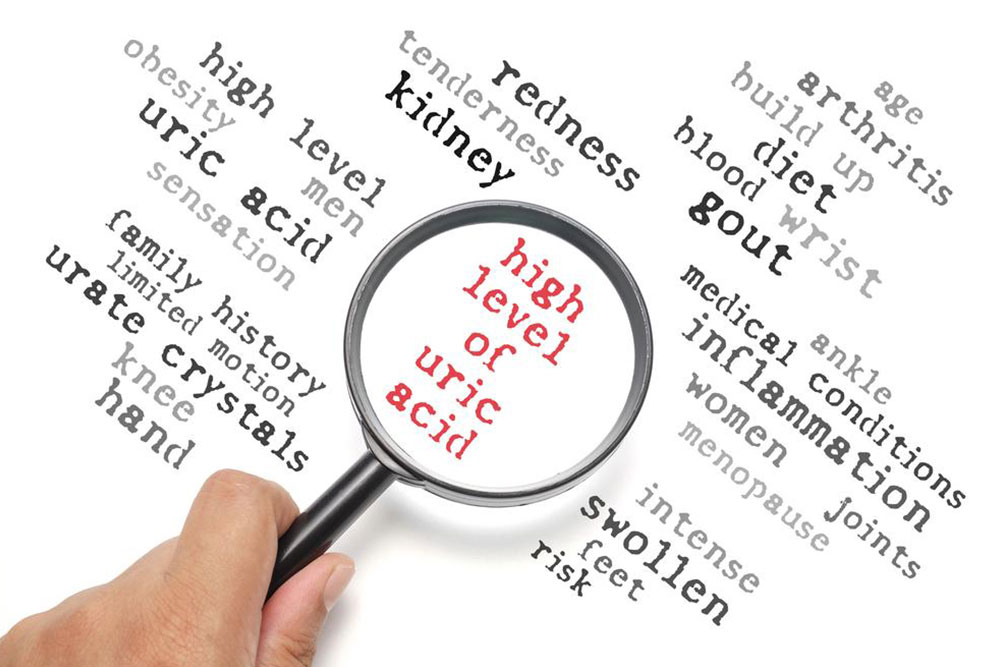Comprehensive Guide to Naturally Lower Uric Acid Levels and Prevent Related Health Issues
This comprehensive article provides in-depth strategies to naturally lower uric acid levels, including dietary tips, lifestyle modifications, and natural remedies. Managing uric acid effectively can prevent gout, kidney stones, and other health issues. Learn how foods, hydration, and supplements like apple cider vinegar and celery seeds can aid in maintaining balanced uric acid levels for overall health improvement.

Comprehensive Strategies to Naturally Lower Uric Acid and Prevent Health Complications
High uric acid levels are a common concern that can lead to painful health conditions like gout, kidney stones, and other metabolic issues. Managing uric acid effectively involves a combination of dietary modifications, lifestyle changes, and sometimes medication under a healthcare professional's guidance. This extensive guide explores various ways to reduce uric acid in the body naturally, emphasizing healthy habits and nutritional choices to promote overall well-being.
Understanding Uric Acid and Its Impact on Health
Uric acid is a waste product formed when the body breaks down purines, naturally occurring compounds found in many foods and beverages. Under normal circumstances, uric acid dissolves in the blood and is filtered out by the kidneys, subsequently expelled through urine. However, issues such as excessive purine intake, genetic predisposition, obesity, or kidney dysfunction can impair this process, causing uric acid to accumulate in the bloodstream—a condition known as hyperuricemia.
Persistently high uric acid levels can result in crystal deposits in joints, leading to gout, severe pain, inflammation, and swelling. Additionally, elevated uric acid can contribute to kidney stone formation and increase the risk of cardiovascular disease. For this reason, monitoring and managing uric acid levels is essential for maintaining long-term health.
Understanding the dietary sources that influence uric acid levels is crucial. Foods rich in purines include red meats, organ meats, certain seafood like sardines and shellfish, as well as some plant-based foods like spinach, peas, and mushrooms. Alcohol consumption, particularly beer, exacerbates uric acid buildup by dehydrating the body and impairing kidney function. Conversely, drinks like wine tend to have a lesser effect, but moderation is key.
Regular health check-ups and blood tests are essential for early detection of elevated uric acid. Recognizing symptoms such as joint swelling, redness, intense pain — especially in the big toe or knees — and persistent discomfort can prompt timely intervention. If you experience these symptoms, consult a healthcare professional for proper diagnosis and treatment plans.
Lowering uric acid involves both dietary control and lifestyle adjustments. The good news is that many effective natural strategies can significantly improve your condition without the need for medication or only as a complement to prescribed therapies. Here are some proven methods to help you manage uric acid levels proactively:
Adopt a Uric Acid-Friendly Diet
Reducing intake of purine-rich foods plays a key role. Avoiding red meats, organ meats, certain seafood like sardines, mussels, and shellfish, as well as processed foods containing high-fructose corn syrup, can make a significant difference. Instead, focus on consuming low-purine foods such as cherries, berries, whole grains, and most vegetables, especially leafy greens and bell peppers. Incorporating foods rich in dietary fiber supports kidney health and enhances uric acid excretion.
Limit or Eliminate Alcohol
Alcohol, particularly beer and spirits, can lead to dehydration and interfere with uric acid elimination. Cutting back or abstaining from alcohol not only benefits uric acid levels but also improves overall health, including liver function and cardiovascular health. Moderate wine consumption may have less impact, but personal tolerance varies, so consulting your doctor is advisable.
Utilize Natural Remedies like Apple Cider Vinegar
Adding a teaspoon of raw apple cider vinegar mixed in a glass of water daily can help alkalize the body and facilitate uric acid breakdown. The malic acid present in apples and vinegar supports detoxification. Regularly consuming apples, which contain natural malic acid, can also aid in reducing uric acid naturally.
Consume Lime Water and Vitamin C-Rich Fruits
Drinking fresh lime water twice daily can help dissolve uric acid crystals and improve kidney function. Incorporating vitamin C-rich fruits such as oranges, guava, and amla enhances uric acid metabolism and lowers its levels due to their antioxidant properties. Vitamin C supplements, if recommended by your healthcare provider, can also be beneficial.
Incorporate Celery Seeds into Your Diet
Celery seeds contain diuretic compounds and Omega-6 fatty acids that support uric acid excretion and reduce joint inflammation. Taking half a teaspoon daily with plenty of water can aid in uric acid removal while promoting overall joint health and reducing inflammation.
Besides dietary changes, adopting healthy lifestyle habits like maintaining a healthy weight, staying hydrated, and exercising regularly can further contribute to lowering uric acid. Obesity is closely linked to increased uric acid levels, so weight management through balanced diet and physical activity is highly recommended. Staying well-hydrated by drinking at least 8–10 glasses of water daily helps flush excess uric acid from your system.
Monitoring your uric acid levels through periodic blood tests enables early detection and management. Normal levels vary slightly, but generally, men should aim for 3.4–7 mg/dL, and women should aim for 2.4–6 mg/dL. If levels remain high despite lifestyle modifications, your healthcare provider may prescribe medications such as uric acid-lowering drugs.
In summary, managing uric acid balances through natural approaches and lifestyle adjustments can prevent serious health issues like gout and kidney stones. Remember, personalized advice from a healthcare professional is invaluable, especially if you have existing health conditions or are on medication. Implementing these strategies consistently will help you enjoy healthier joints and improved overall well-being.





